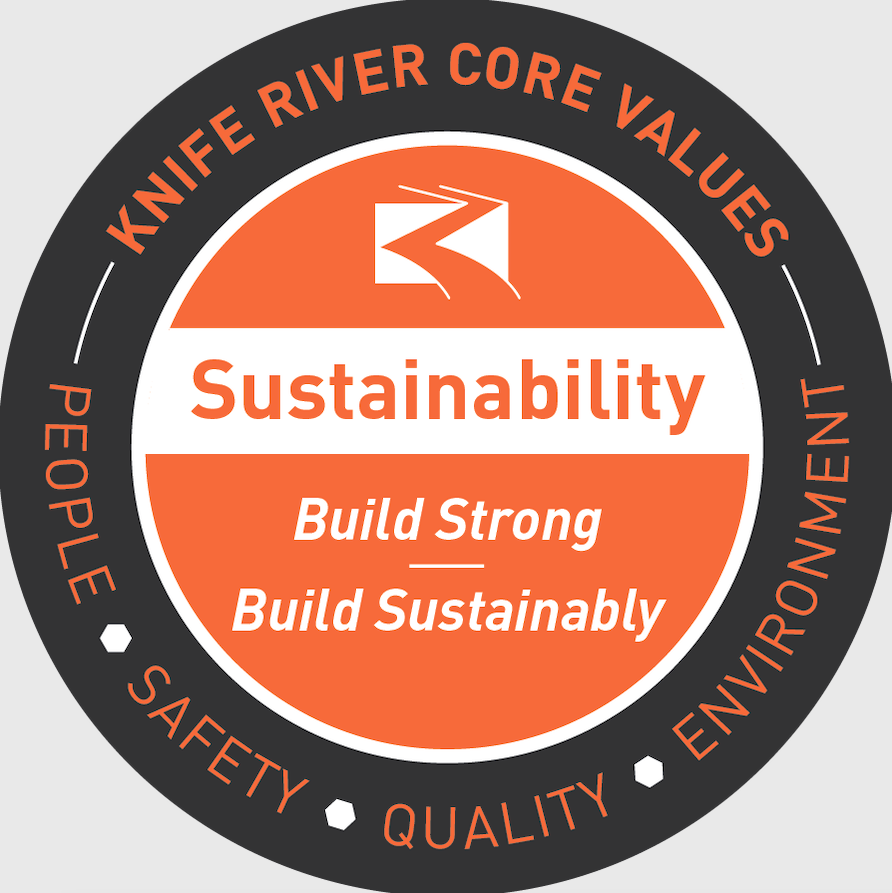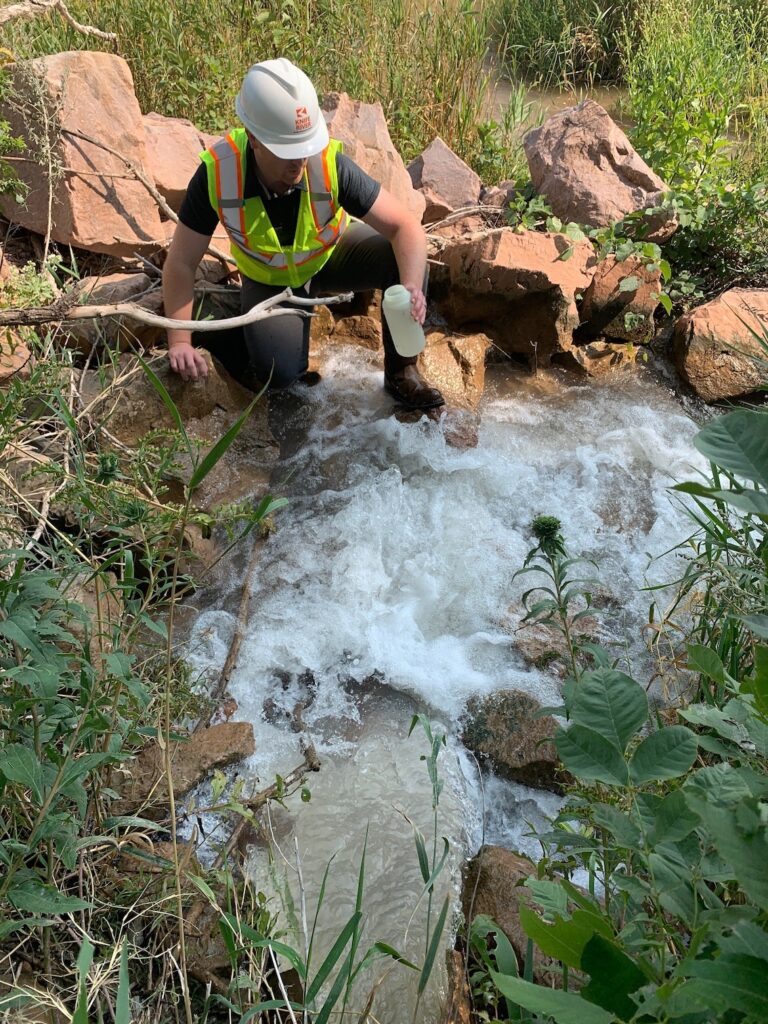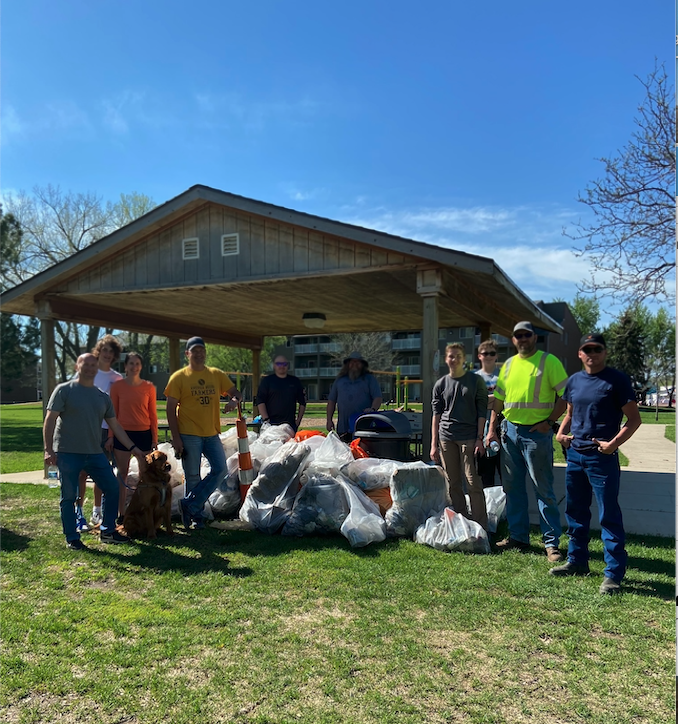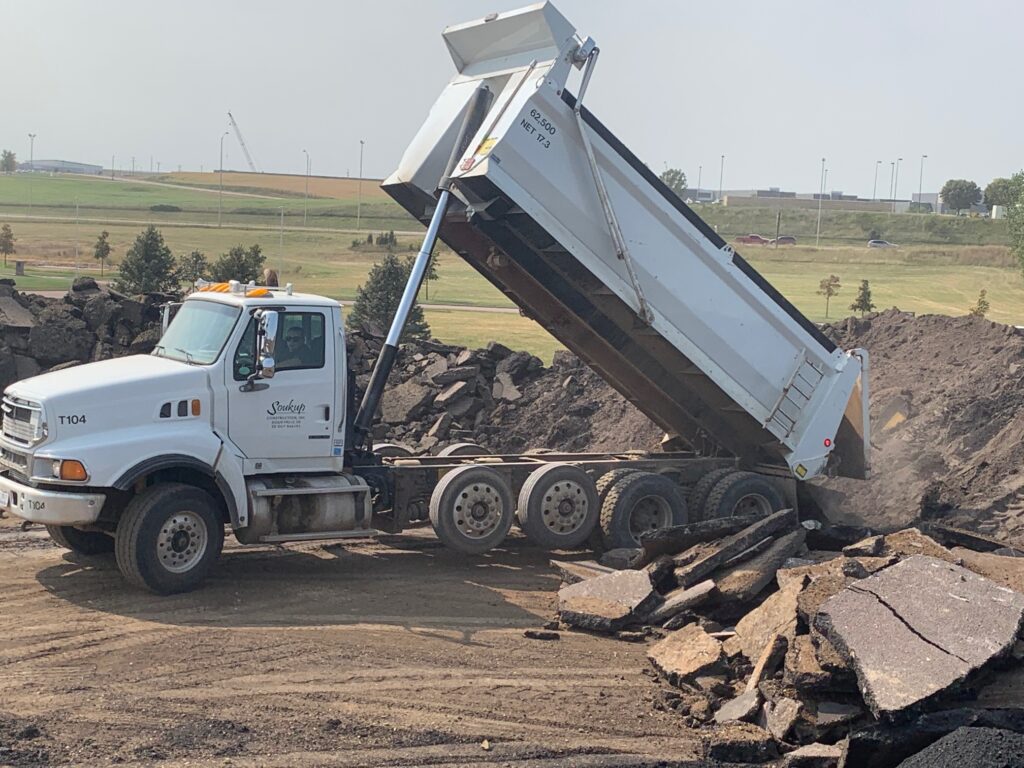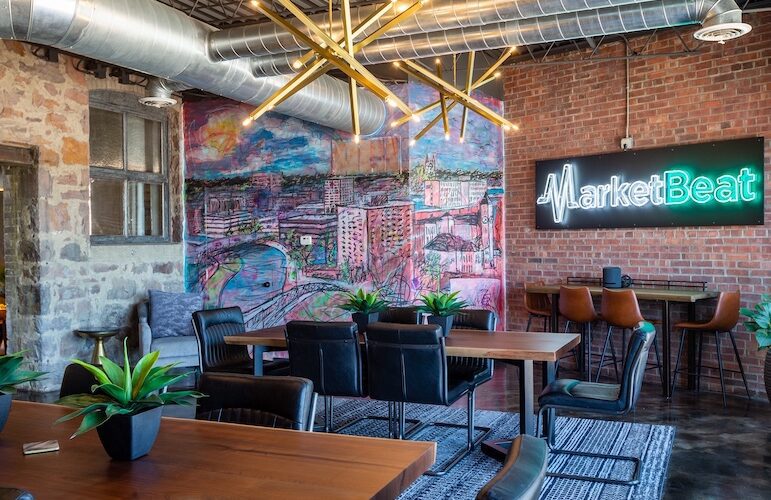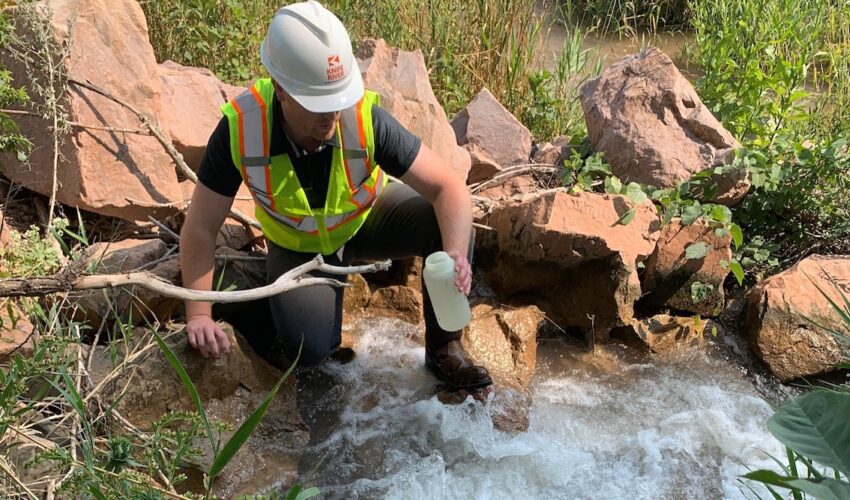Green thinking: 7 ways this Sioux Falls operation does business with sustainability in mind
Sept. 26, 2022
This paid piece is sponsored by Knife River South Dakota.
Want to know what really matters to a company? Look at its core values.
When you do that with Knife River, you’ll discover four things: people, safety, quality and a commitment to the environment.
So it then becomes no surprise that sustainability is engrained across the operation.
“These values are our guiding principles – the framework for what makes us who we are,” said John Quade, president of Knife River’s North Central Region, which includes the Sioux Falls operations. “Within that framework, each Knife River operation is managed locally, which helps us better engage in our communities and respond to local requirements.”
The framework includes adhering to guidance from the Sustainability Accounting Standards Board for construction materials and contracting – an industry standard managed locally – as well as additional requirements at the state, county and city levels.
For Knife River South Dakota, sustainable practices are woven throughout the local operation. Here’s a look at seven ways Knife River “goes green” every day.
Water conservation
Knife River uses conservative practices to minimize impact on resources, including water.
When groundwater naturally flows into an area where aggregate is being harvested, it must be pumped out. Within the Sioux Falls operation, the team reuses much of this water on-site for dust control and in the washing process before ultimately placing it into a settling pond to filter it. All water that is discharged off-site is inspected and tested to comply with all applicable permits.
“Additionally, we recently constructed two facilities that capture the wash-out water from all ready-mix trucks,” Knife River South Dakota president Clark Meyer said. “The water passes through a system of five settling weirs. When it reaches the last containment area, it is clean enough to be reused for washing again. Any concrete residue that has settled in the weirs is recycled.”
Concrete and asphalt recycling
Whenever a construction project in the region requires the removal of asphalt or concrete and it is hauled off-site, contractors or the project owners are looking for a place to dispose of the debris. Concrete and asphalt rubble from those job sites are received at multiple Knife River locations.
This rubble is stockpiled — Knife River accepts about 150,000 tons each year — and then crushed and screened into high-quality, desirable base material for future projects.
“Asphalt and concrete are some of the most-recycled materials on the planet, and we recycle a lot of it at Knife River,” Meyer said. “Not only do both products make great base materials, but recycled asphalt is also used in our fresh asphalt mixes that we produce.”
Carbon reduction
Concrete is a mixture of water, aggregates and cement powder. When design specifications allow, Knife River utilizes lower-carbon options for the cement. This includes Type 1L cement, which contains 5 precent to 10 percent finely ground limestone, resulting in a 10 percent reduction in the carbon footprint compared with traditional cement.
“We use Type 1L in about a third of our total annual volume,” Meyer said. “We also are able to reduce the amount of cement used by integrating recycled fly ash, which is a residue of burnt coal, in the mix.”
Tree planting and food plots
Around many of Knife River’s operations, trees have been planted whenever possible. For instance, along the Rice Street ready-mix and asphalt plants, a berm and trees create a site and sound barrier. Along North Louise Avenue, a tree farm was started years ago to grow replacement trees for any facility that may need them.
“Focusing on planting as many trees as possible on properties helps to capture stormwater and sequester locally emitted carbon,” Meyer said. “Around our Corson operations, wildlife food plots have been planted and maintained to foster habitat and growth.”
Weed control and park cleanup
Along the 72 miles of its Ellis & Eastern rail line and sidings, an annual weed-control program is imperative as Knife River neighbors include many active farmers and cropland, especially in southwest Minnesota.
“Ellis & Eastern made an immediate positive impact on all of the adjacent landowners and neighbors with their comprehensive weed-control program,” said Kyle Oldre, Rock County, Minnesota, administrator and chair of the Nobles Rock Rail Road Authority Board. “They have proven to be good stewards of the land and environment.”
Knife River employees participate in several park cleanup days both in Sioux Falls and Sioux City. In Sioux Falls this year, the Beadle Park Greenway was selected. It happens to be adjacent to the Ellis & Eastern rail line, which also was included in the cleanup scope.
Rail transportation
You might not think of moving commodities by rail as promoting sustainability, but it definitely does.
Just in the Sioux Falls market, 4,500 rail cars crossed the city hauling aggregates over the past year.
Hauling by rail is three to four times more fuel efficient that hauling by truck, according to the Association of American Railroads. Rail cars can carry the equivalent of four to six trucks, which are removed from daily traffic. More than 6,000 rail cars of various products are received into Knife River facilities in region.
Environmental permitting and personnel
Knife River ensures coverage of all facilities and operations in need of environmental permitting.
In the Sioux City operations covering South Dakota, Iowa and Nebraska, Knife River operates under 79 separate permits with reporting responsibilities to each state environmental agency. Within these operations, there has been a history of stellar environmental compliance. In the past 22 years, there has been only one instance where penalties were levied because of environmental compliance issues. In the entire Knife River North Central Region — North Dakota, South Dakota, Minnesota, Nebraska and Iowa — there have been only three instances recorded in the past 22 years.
“To continue this good record, we have four employees on staff solely dedicated to environmental compliance in the region,” Meyer said. “We strive to meet or exceed permit expectations, and we are always looking for ways to improve sustainable practices and promote proper stewardship of natural resources while keeping pace with a rapidly growing construction market.”
To learn more about Knife River’s commitment to sustainability, click here.

